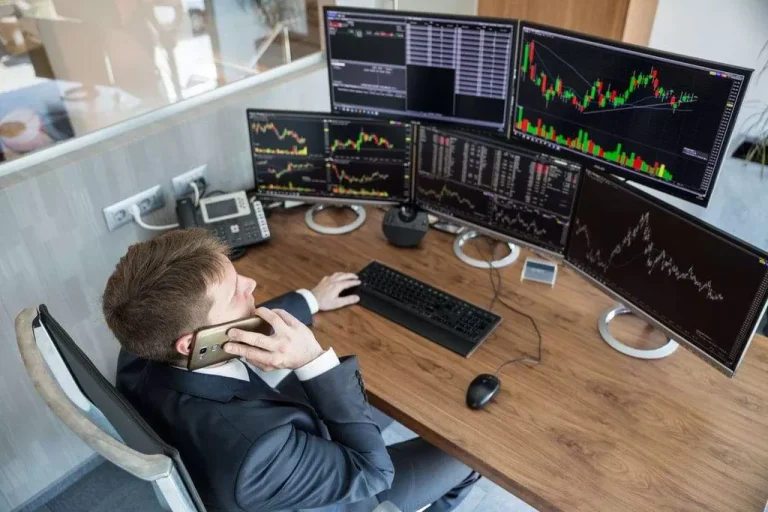Content
If you trade through one of the other brokers, they will not lose money. For example, if you trade through Smart contract an MM broker and you make a profit of $250 while trading forex, the broker will lose on the particular trade. The management fee is typically between 0.03% and 0.06% depending on the trading platform. It has the same function as a monthly mortgage payment with the difference that it is charged every day at midnight for positions that roll over to the next day. Let’s say that you trade forex with leverage and open a standard lot worth $100,000 at a spread of 2 pips. Brokers have three main ways of making extra money while offering leverage to traders.
How Do Forex Brokers Make Money? A Comprehensive Guide
Chances are very good none of those clients were working with any of the forex brokers on the list you just read. Late last year in the United States, a whopping 47 forex brokers were arrested after a six-month FBI investigation that spanned six states. Brokers and trading platforms that provide leverage do so simply to earn more money. This is the biggest revenue source for an MM broker while STP, ECN, and https://www.xcritical.com/ DMA brokers mostly rely on income from trading fees. This is very common in crypto trading and most brokers who offer leveraged products such as futures, options, or other derivatives charge this commission.

How do Zero Commission Brokers make money?

It is essentially a loan provided by the forex broker to the trader, allowing the trader to take larger positions and thus potentially amplify profits (and losses). A swap is a fee charged by forex brokers for holding a position overnight. Forex trading is typically done on a margin basis, meaning traders only need to put up a small percentage of the total trade size as collateral. However, if a trader holds a position overnight, the broker may charge a swap fee to cover the cost of financing the position. While it’s true that B-Book brokers can potentially profit from client losses, it’s important to understand that their business model relies on brokers payment system long-term client relationships.
Trading brokers: hedging vs internalisation vs betting on clients losing
You will get an answer as a percentage, i.e. “Our rates are 0.5% from the mid-market.” What this means is that the broker’s fees are 0.5% of the transaction value. You won’t see this on a statement because it will be built into the exchange rate, which the broker widens from the mid-market. So when you compare money transfer services, always go with a broker prepared to offer fixed and transparent exchange rates.
- When you initiate a trade with your broker, both you (the trader) and the broker are exposed to market risk.
- Despite the advertisements that you see of people in the Caribbean on a beach, or perhaps getting off of their private jet, most retail Forex traders do not have that much money in their account.
- Swap fees, also known as overnight or rollover fees, are another way forex brokers make money.
- The problem comes if you’re trading with an UNETHICAL market maker that misleads clients into losing.
- This causes the trading book to constantly change and “net” long (or short) positions in individual currencies to arise.
- Other common fees may crop up if you want assistance from a human being.
Oanda is one of the seven regulated forex brokers that is licensed by the CFTC and the AFN to operate in the United States. However, since most retail traders lose money on average, Market Maker brokers still make huge profits from all these losses. There are obvious reasons why brokers benefit from providing leverage such as increased position sizes, higher fees, and often more losing traders that generate revenue. Some brokers charge both a commission and a spread on a trade, while others offer commission-free trades. When trading with a commission-free broker, clients need to make sure the broker doesn’t offset lack of commissions by charging higher-than-average spreads.
However, understanding the possibility of such manipulations by forex brokers is crucial for traders. Therefore, it’s always wise to opt for a regulated forex broker, as these entities operate under strict financial regulations which significantly minimize the risk of price manipulation. By choosing regulated brokers, traders can invest with an enhanced level of trust and security in the forex market.
Spread bets and CFDs are complex instruments and come with a high risk of losing money rapidly due to leverage. 69% of retail investor accounts lose money when trading spread bets and CFDs with this provider. You should consider whether you understand how spread bets and CFDs work and whether you can afford to take the high risk of losing your money. You should consider whether you understand how spread bets and CFDs work, and whether you can afford to take the high risk of losing your money.
Actually, if you have an account with us, the only leveraged markets for which you will pay commissions are shares and ETF CFDs. Please be aware that commissions may only be charged on certain types of trades. For instance, if you use our contracts for difference (CFDs) to trade shares rather than futures or forwards, commissions may apply.
Additionally, brokers can lose money in operational expenses and overheads, particularly if they don’t have enough active traders to cover these costs. They may also suffer losses due to system failures, compliance issues, fines from regulatory bodies for non-compliance, and various unforeseen circumstances. Finally, if a leveraged trade goes sour, the forex broker may profit from the liquidated positions, particularly if they have a B-Book business model where they serve as the counterparty to the trades. The key to efficiently executing this model lies in robust customer profiling, categorizing traders based on trade size, account balance, leverage, risks they take, and their use of stop losses. Advanced software algorithms analyze and profile traders to identify patterns that are indicative of either profitable or losing behaviors. This information then guides the decision on whether a client gets A-Booked or B-Booked.
Yes, Forex brokers who use the B-Book execution model do make money when traders lose. They act as the dealer and take the opposite side of the client’s trade, meaning they profit if the client loses money on their trade. A white label solution in forex trading refers to a practice where a broker offers its trading platform and other services under the brand of another company. The mechanism works by brokers routing client orders to the liquidity provider that pays them the highest rate for order flow, rather than where the client might get the best execution price. For instance, a broker might receive a fraction of a pip as compensation for every trade executed by the liquidity provider they send orders to.
Because of this, in a volatile market you may end up paying more in spread than you anticipate. This is the major advantage for a fixed spread, because at least you’ll know what you’re going to be charged to facilitate buying and selling. It is vitally important to know going in that you should only trade with the amount of capital you can afford to lose. To put this income stream in its proper perspective, it can help to remember that forex brokers make money when you lose money. Some forex brokers offer it and others do not and in both cases, this will appeal to a certain customer segment.
Filippo specializes in the best Forex brokers for beginners and professionals to help traders find the best trading solutions for their needs. He expands his analysis to stock brokers, crypto exchanges, social and copy trading platforms, Contract For Difference (CFD) brokers, options brokers, futures brokers, and Fintech products. Larger positions amplified by leverage increase the size of the spread or commission, boosting the broker’s revenue. Additionally, there might be instances where brokers charge interest on leveraged positions held overnight. Alongside this, forex brokers are also required to comply with a set of strict rules called Treating Customers Fairly (TCF).
Since Market Maker brokers take the other side of the trader’s position they are at risk of losing money every time a trader enters the market. If the market gets volatile, you could end up paying much more than you expected. Another aspect to note is that a forex broker could have a different spread for buying a currency and for selling the same currency. Some ETPs carry additional risks depending on how they’re structured, investors should ensure they familiarise themselves with the differences before investing. To help you minimise your losses and protect you against slippage, many trading brokers like us offer guaranteed stops.
If a trader wants to buy a currency pair, they will be quoted the ask price from the broker. Should they want to sell the same currency pair, the broker will indicate the bid price. Now, the broker pockets the difference between these two prices, which is the spread.
